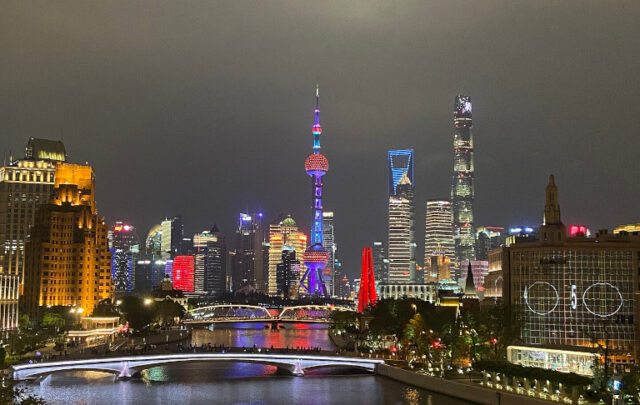NOTE: Images in this archived article have been removed.
 From the Japan Times:
From the Japan Times:
Former Irish President Mary Robinson’s foundation for climate justice is hosting a major conference in Dublin this week. Research presented there said that rising incomes and growth in the global population, expected to create 2 billion more mouths to feed by 2050, will drive food prices higher by 40 to 50 percent.
“We must prepare today for higher temperatures in all sectors,” said Gerald Nelson, a senior economist with the Washington-based International Food Policy Research Institute (IFPRI).
All of the studies suggest the worst impacts will be felt by the poorest people. Robinson, Ireland’s first female president, said: “Climate change is already having a domino effect on food and nutritional security for the world’s poorest and most vulnerable people. Child malnutrition is predicted to increase by 20 percent by 2050.”
But from Europe to the U.S. to Asia, no population will remain insulated from the huge changes in food production that the rest of the century will bring.
The intersections between food and politics, population and agriculture, economics and climate are incredibly complex, and very hard to sort out. The truth is that while we all know nothing good will come of them, the exact implications are complex to model. But there is something else truly critical missing from the models – any understanding of how energy and food prices have become so tightly intertwined, and what peak oil will do to these models.
While at this point climate change is not
reducing overall grain yields (although it is expected to begin doing so in the 2020s by most models I’ve seen), in a way that’s still troubling – because our last global food crisis came during a period of record yields. Ultimately, yield is hugely important, but cost and distribution are what really matter most, and the complicated ways in which we’ve tied food prices to the price of oil mean global hunger can skyrocket EVEN IF yields don’t fall. If they eventually do fall, which pretty much everyone expects, that’s a recipe for disaster.
The problem is that at this point, no one is providing a clear and complete modelling picture of the intersections of energy, food, population, economics and climate – and yes, that’s one hell of a complex modelling problem. But it also may be the most critical modelling problem of our times:
I’ve taken the UN to task for not adding peak energy into their modelling programs, but the UN is just a starting point – although a critical one:
Peak Oil changes the world food picture entirely – agro ecological responses to our food crisis, endorsed by several UN reports in the last few years, become not just a good idea but an absolute necessity when you have to reduce the amount of energy and in particular liquid fuels, consumed in agriculture. The UN has been a consistent leader in recognizing the ways that biofuels drive up the price of food for the world’s hungry poor, but has failed to grasp the ways that without a conscious untangling, food and energy prices will become even more tightly bound together – potentially leaving billions hungry.
Peak Oil is fundamental to nearly every issue that the UN addresses. Understanding why energy shortages tempt us to burn coal – and how to avoid it is critical to our climate picture. The UN’s emergent focus on women’s impact in reducing poverty and improving lives must continue – but must move in areas that aren’t fossil fuel dependent. We must prepare for a less-globalized, not more globalized, society and one struggling with new poverty in new places as climate change and Peak Oil come together. Human rights of all sorts will be affected by the changes that are coming. If we do not wish to lose gains because we are surprised by depletion, we must prepare to hang on to them in a lower energy society.
There is, at this moment, as far as I know, no comprehensive UN study on energy resources and their future. This is both a shame and a scandal – we are preparing for the coming century without a clear picture of the real problems that beset us. Every nation on earth relies on UN research and material to make decisions – and that material is becoming increasingly irrelevant. It is time for the UN to come into the 21st century and recognize that finite resources are truly finite – and that a clear picture of our limits is essential to our human future.
Nearly everyone is failing to take into account the role of geology, oil and energy limits in their predictions – and we’re racing towards disaster.
 From the Japan Times:
From the Japan Times:




